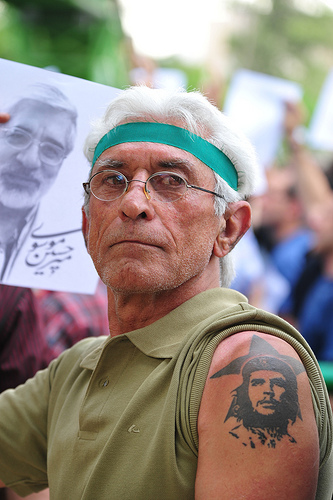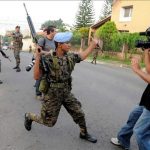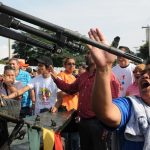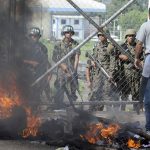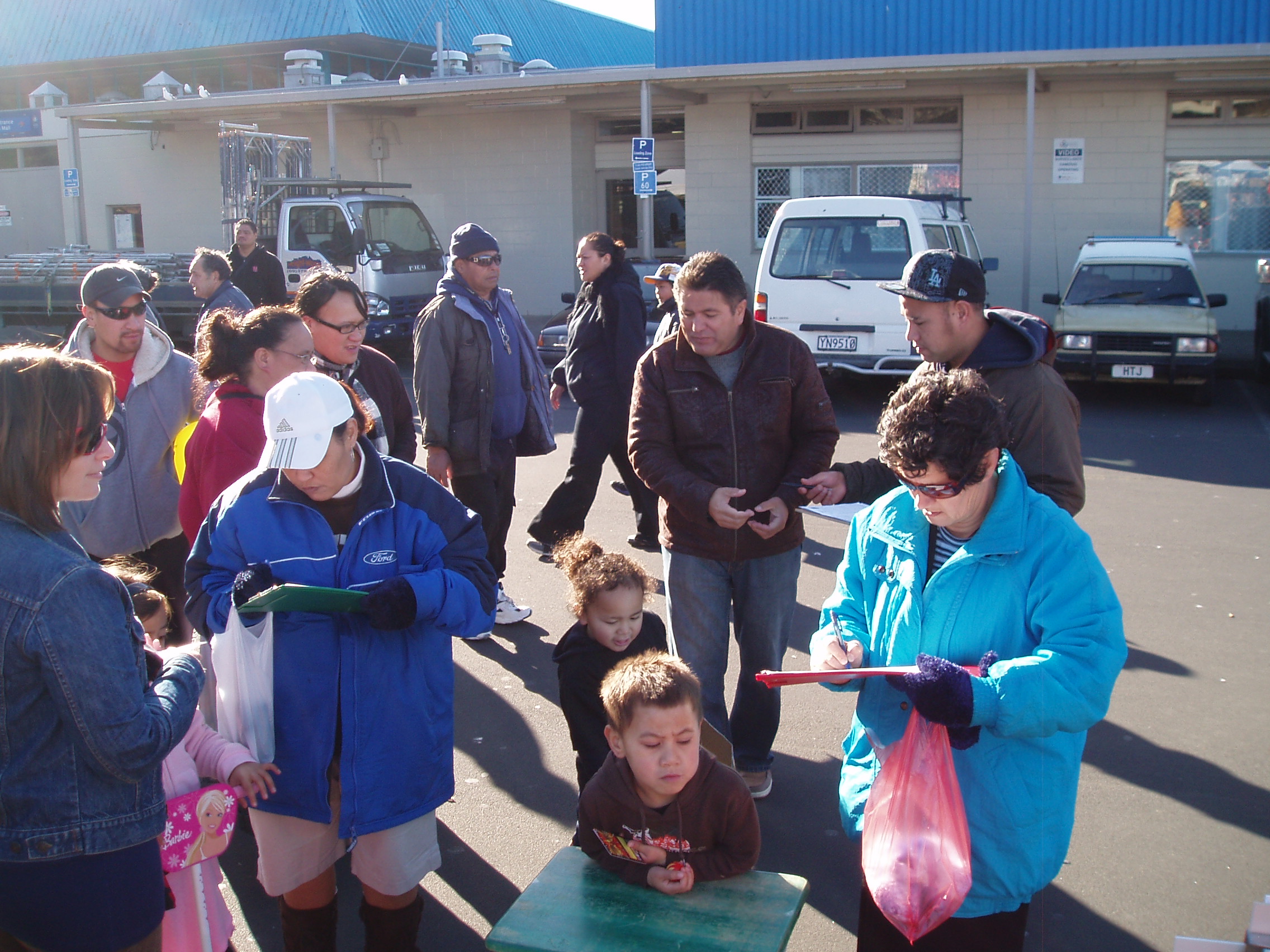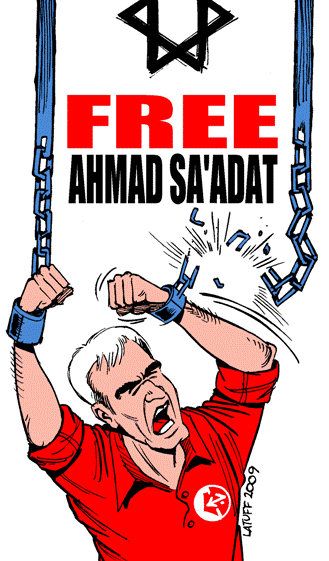
Workers Party-PFLP solidarity blog
Campaign to free Ahmad Sa’adat
“This is your court and you possess the force to celebrate the trial and convict me on the basis of your lists of accusations, the public one and the secret one, and you can dictate a sentence prepared by the political and security apparatuses that are behind this trial. But I too possess a will obtained from the justice of our cause and the determination of our people to reject any decision from this ‘kangaroo court’…” -Ahmad Sa’adat
Currently there are over 11,000 Palestinian political prisoners being held in Israeli jails. This number is increasing daily as IDF Military Incursions and searches in the West Bank total over 500 separate incidents and 300 arrests each month, mainly targeting political ideology. This is not an unusual part of Palestinian political life and has been a crucial part of the Zionist strategy to eliminate political opposition to the state of Israel. An example of this can be seen when examining the political life of the current General Secretary of the Popular Front for the Liberation of Palestine (PFLP); Ahmad Sa’adat. Between the years of 1967, when Sa’adat joined the PFLP led Palestine Student Union, and 2002 when he was abducted by the IDF from a jail in Jericho, Sa’adat had been arrested 9 times and jailed for close to ten years for his involvement in the PFLP.
Ahmad Sa‘adat, General Secretary of the PFLP, was arrested again on the 15th of January 2002 by the Palestinian General Intelligence Service. He was then transferred to Force 17 (the Palestinian Presidential bodyguard), and held after that in President Arafat’s compound in connection with the killing of the Israeli Minister of Tourism, Rehavam Ze‘evi, on 17 October 2001. The PFLP claimed responsibility for the killing, although Ahmad Sa‘adat was not formally charged with any recognisable criminal offence. This assassination was a response to the killing of Abu Ali Mustafa, General Secretary of the PFLP, who was killed in a targeted assassination by two rockets fired from an Israeli helicopter as he sat at his desk in Ramallah on August 27, 2001.
A petition was presented to the Palestinian High Court of Justice in Gaza calling for the immediate release of Ahmad Sa‘adat. This caused the High Court of Justice to request that the PA General Intelligence Service bring evidence against him. The Intelligence Service failed to do so and on the 3rd of June 2002 the High Court ordered the immediate release of Ahmad Sa‘adat as he had never been charged or brought before a judge.
Continue reading “Free Ahmad Sa’adat”


